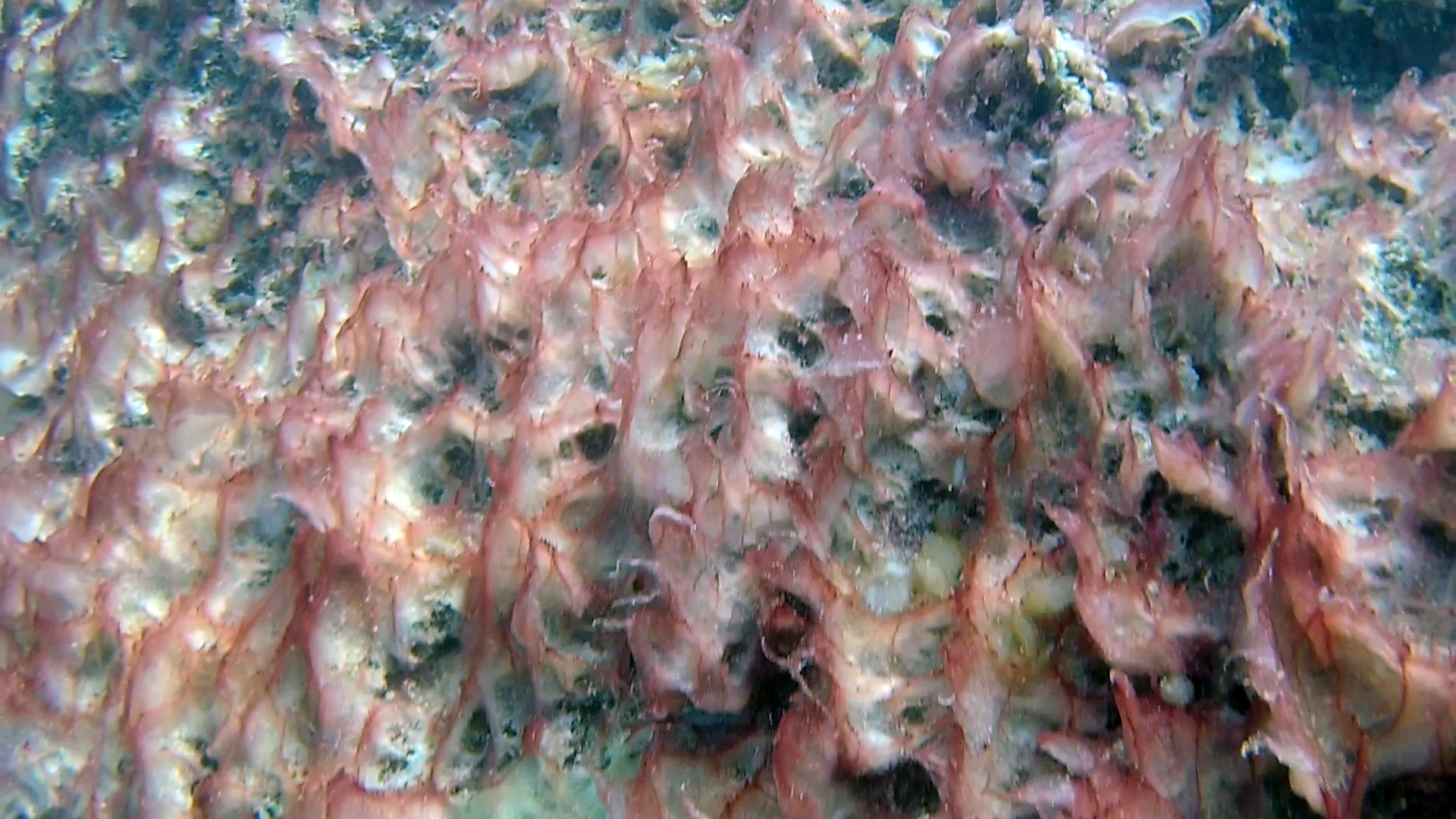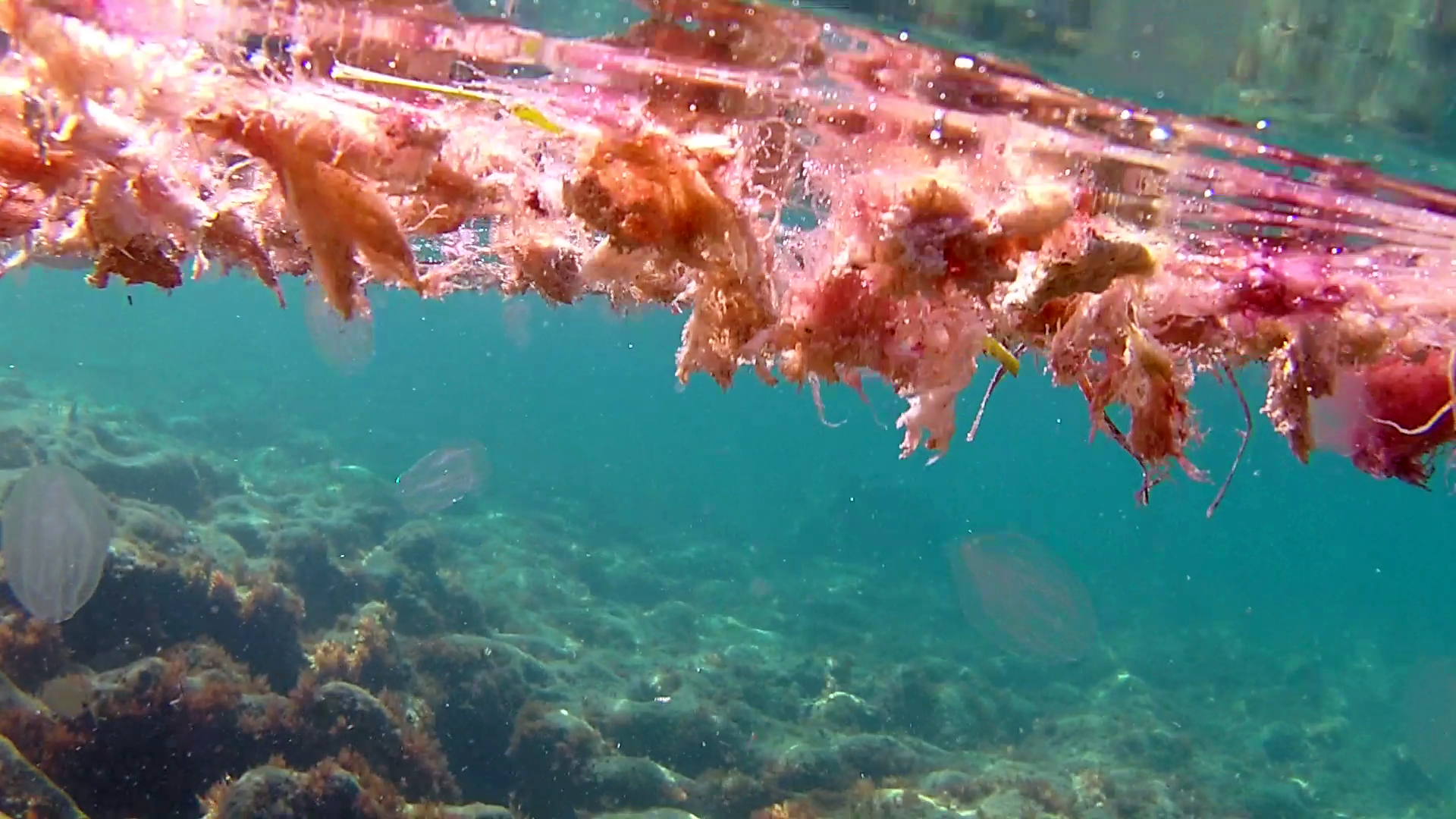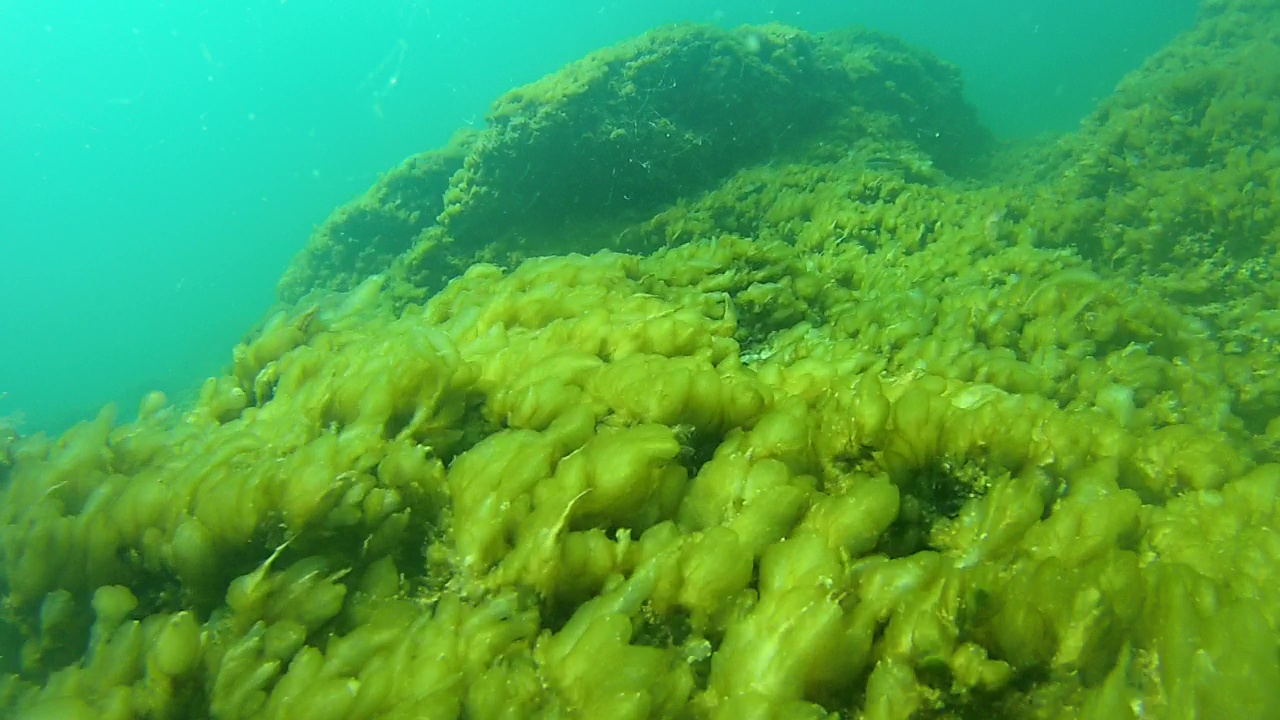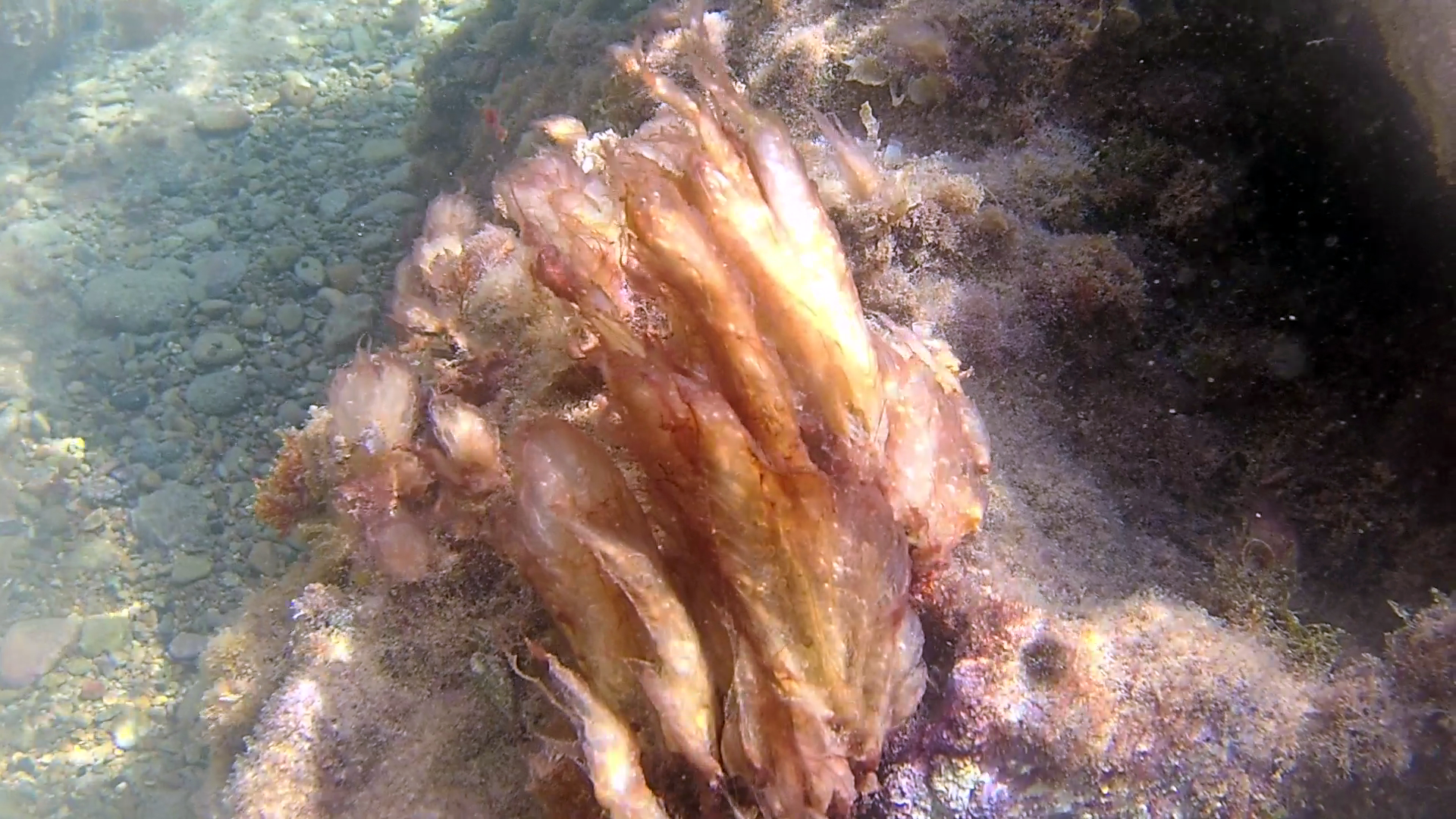Mucillagine - Oscillatoriales Algae
The Mucilage caused by marine heating. Nobody can deny that the warming of our planet Earth is now evident even to those who still harbor doubts and uncertainties. Climate change is present at all levels of our ecosystems: from tropical forests to the oceans. Mucilage Mucillagine riscaldamento marino global warming Intotheblue.it

In the videos linked at the bottom of the post, we document what is happening more and more frequently in the Mediterranean during the summer when the heating reaches the highest peaks and various types of mucilages are formed which, starting from the surface of the sea, reach more than 40 meters deep.

The temperature of the Mediterranean during the summer period increasingly reaches 27 ° -28 ° C. and beyond and if we consider that rivers carry more and more quantities of nutrients used in agriculture it becomes easy to think that the phenomena of mucilage inflorescences will be destined to increase considerably.Mucilages are the most obvious phenomenon that stands out of all to see, but I must say as a direct witness that there are other phenomena that are no less worrying that are changing the ecosystem of the Mediterranean Sea such as the proliferation of Mnemiopsis leidyi that has been included in the the list of 100 of the most harmful invasive species in the world and which intotheblue.it documents among its videos.

The investigations carried on this case out have made it possible to verify that these are mucilaginous aggregates of filamentous cyanobacteria belonging to the order of the Oscillatoriales, with the presence of Calcareous macroalgae, Licmophora Sp. And other pinnate Diatoms. These mucilaginous aggregates are polysaccharide in nature and are not toxic. Proliferation can be associated with rising sea water temperatures.

The investigations carried out have made it possible to verify that these are mucilaginous aggregates of filamentous cyanobacteria belonging to the order of the Oscillatoriales, with the presence of Calcareous macroalgae, Licmophora Sp. And other pinnate Diatoms. These mucilaginous aggregates are polysaccharide in nature and are not toxic. Proliferation can be associated with rising sea water temperatures. Mucilage Cyanobacteria Oscillatoriales Algae intotheblue.it

Mucilage is a thick, gluey substance produced by nearly all plants and some microorganisms. These microorganisms include protists which use it for their locomotion. The direction of their movement is always opposite to that of the secretion of mucilage. It is a polar glycoprotein and an exopolysaccharide. Mucilage in plants plays a role in the storage of water and food, seed germination, and thickening membranes. Cacti (and other succulents) and flax seeds are especially rich sources of mucilage.
https://it.wikipedia.org/wiki/Mucillagine
Gallery
Mucilage Mucillagine riscaldamento marino global warming Intotheblue.it
Video Gallery
